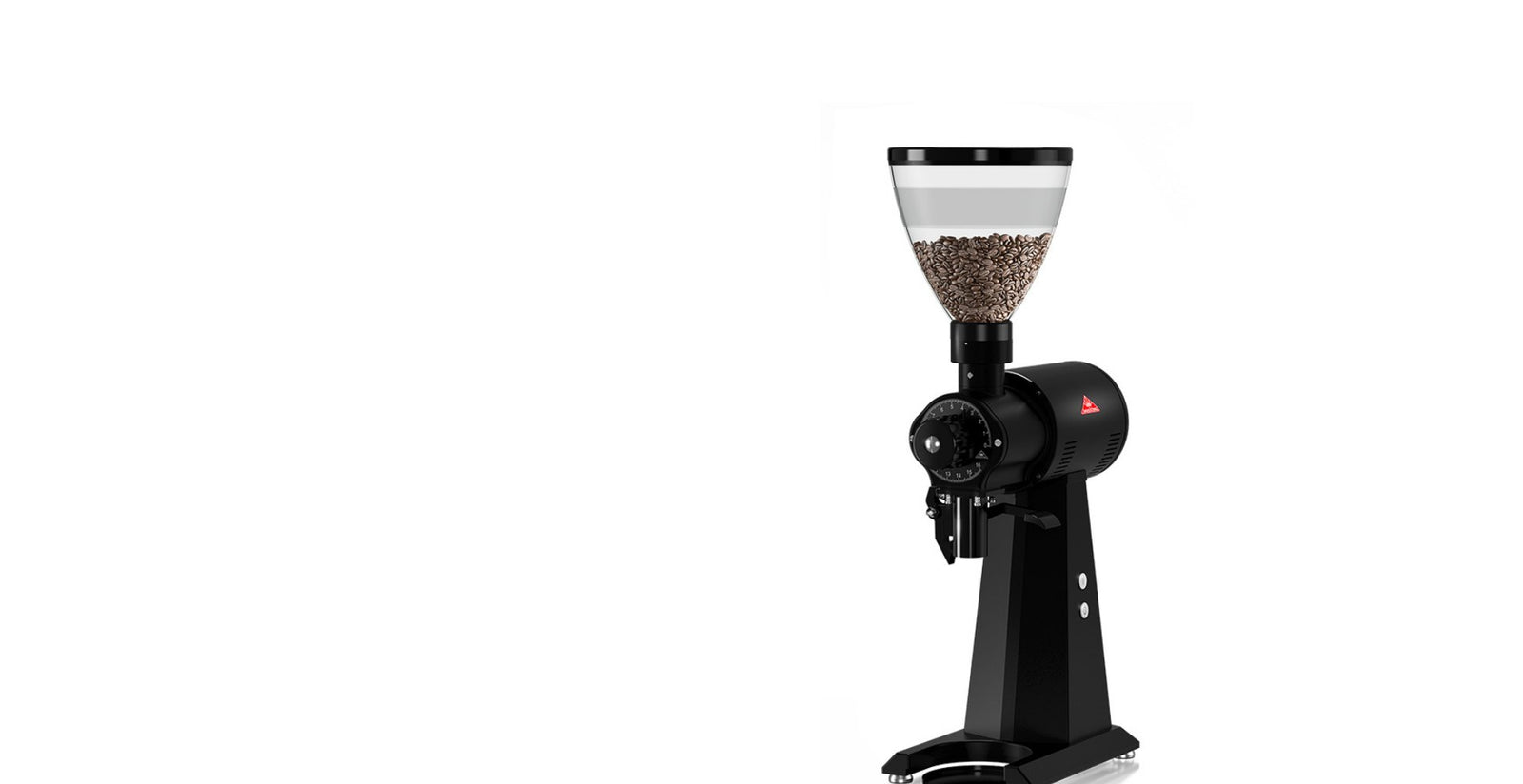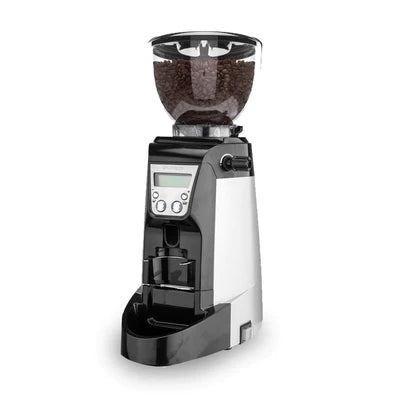Just How to Choose the Perfect Industrial Coffee Grinder for Your Business
Selecting the suitable commercial coffee mill for your service is a multifaceted decision that requires cautious consideration of numerous critical elements. In addition, recognizing the numerous kinds of grinders readily available can dramatically influence your functional efficiency.
Assess Your Grinding Requirements
When selecting an industrial coffee mill, one need to first examine their grinding needs to ensure optimal efficiency and consistency. This preliminary assessment includes recognizing the volume of coffee to be processed daily, in addition to the preferred work dimension for various brewing methods. A high-capacity mill may be needed for companies serving huge quantities of coffee, while smaller sized procedures may find a much more small design adequate.
In addition, it is crucial to consider the kinds of coffee beans being used, as different beans might need certain grinding methods to attain the ideal flavor account. For example, oily beans may necessitate a grinder developed to take care of such characteristics without clumping or overheating.
Specialty coffee companies often demand accurate grind dimensions to improve extraction and taste, making it important to pick a mill that can supply consistent results. Reviewing the readily available room and electrical requirements will assist in selecting a grinder that fits seamlessly right into your operational operations.
Understand Mill Kind
Recognizing the various kinds of commercial coffee grinders is crucial for making an informed selection that fulfills certain functional demands. There are mostly two groups of grinders: blade grinders and burr mills.
Blade grinders use spinning blades to cut the coffee beans, causing an inconsistent work dimension - Industrial Coffee Grinder. While they might be a lot more cost effective, they are often not suitable for commercial applications where precision is important
On the other hand, burr grinders provide a more uniform work by crushing the beans in between two surfaces. They can be further categorized into flat burr and conical burr mills. Flat burr grinders provide a consistent work dimension and are generally preferred for espresso preparation, while cone-shaped burr mills are functional and can take care of a variety of mixture techniques, from espresso to French press.
When choosing a grinder, think about the certain demands of your organization, including wanted grind consistency, production volume, and the sorts of coffee drinks you plan to supply - Industrial Coffee Grinder. Each grinder type has its advantages and limitations, so recognizing these subtleties enables educated decision-making that aligns with operational objectives
Evaluate Grind Dimension Uniformity
Accomplishing grind size uniformity is important for creating top quality coffee, as variants in fragment dimension can substantially affect removal and flavor. When picking a commercial coffee grinder, it is vital to review exactly how well the device keeps uniformity in grind dimension across various sets. Irregular grind dimensions can lead to irregular extraction, causing a cup that might taste excessively bitter or weak.
To assess work dimension uniformity, consider grinders with functions such as adjustable grind setups and high-grade burrs. Burr mills, specifically, master producing uniform particle sizes compared to blade mills. The product and form of the burrs play a crucial duty, with stainless-steel and ceramic alternatives offering toughness and accuracy.

Think About Production Ability
In the hectic globe of coffee manufacturing, thinking about manufacturing capability is vital for services aiming to fulfill need without sacrificing top quality. The production capacity of an industrial coffee mill straight influences a business's ability to satisfy orders successfully, handle stock, and reply to varying market trends.
When examining production ability, it is vital to evaluate the grinder's outcome price, typically determined in extra pounds per hour. This measurement needs to line up with your company's projected sales quantity and development targets. A café with a high turnover may require a mill that can refine a number of hundred pounds daily, while a smaller operation might suffice with a reduced ability version.
Furthermore, consider the kind of coffee being processed. Different beans and blends might affect grinding rate and performance, demanding a mill efficient in taking care of diverse production demands. It's likewise worth factoring in the mill's capability to keep constant high quality under high outcome conditions, as any changes can influence the last product.
Ultimately, selecting a website here mill that matches your service's production capability will guarantee you remain affordable and receptive to client assumptions.

Budget and Upkeep Factors
When examining the appropriate industrial coffee budget, maintenance and mill aspects play a considerable function in the general decision-making process. A first financial investment in a top notch mill can yield long-term advantages, but it's vital to establish a clear budget that lines up with your company's operational demands. Consider both the purchase rate and possible operational costs, such as energy intake and substitute components.
Industrial coffee grinders call for regular upkeep to ensure ideal performance and durability. Review the manufacturer's referrals for upkeep, consisting of cleansing timetables and components replacement, as these will certainly influence long-term functional expenses.

Purchasing a grinder that is resilient yet very easy to maintain can save cash with time. While lower-priced alternatives might be appealing, they may incur greater maintenance expenses and minimized performance. Ultimately, balancing first prices with lasting upkeep and operational performance will certainly direct you to the ideal choice for your service's coffee grinding requirements.
Verdict
Selecting the excellent commercial coffee grinder requires a detailed analysis of grinding demands, mill kinds, grind size uniformity, manufacturing capacity, and financial considerations. A well-chosen grinder not only enhances the quality of the coffee produced but additionally adds to the general success and success of the business.
Specialty coffee companies typically require exact work dimensions to boost removal and taste, making it crucial to select a grinder that can provide consistent results. Apartment have a peek at this site burr mills provide a constant grind size and are normally preferred for espresso preparation, while cone-shaped burr grinders are functional and can manage a range of mixture techniques, from espresso to French press.
When choosing a commercial coffee mill, it is critical to evaluate how well the equipment preserves harmony in work size throughout different batches. Burr grinders, in particular, succeed in creating consistent particle sizes contrasted to blade mills.Choosing the ideal industrial coffee grinder requires an extensive analysis of grinding demands, mill kinds, grind dimension uniformity, production capacity, and budgetary considerations.
 Emilio Estevez Then & Now!
Emilio Estevez Then & Now! Scott Baio Then & Now!
Scott Baio Then & Now! Keshia Knight Pulliam Then & Now!
Keshia Knight Pulliam Then & Now! Michael Fishman Then & Now!
Michael Fishman Then & Now! Bill Murray Then & Now!
Bill Murray Then & Now!